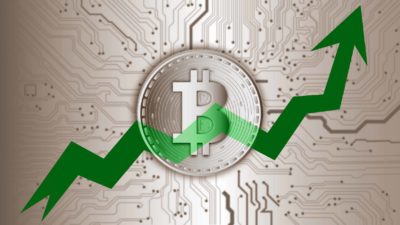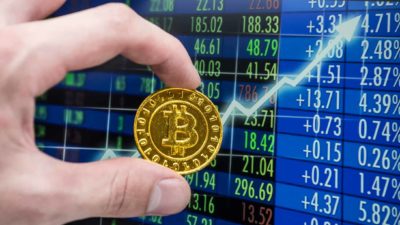Bitcoin (CRYPTO: BTC) is experiencing yet another correction, only a couple of weeks after the market thought it might have headed upwards.
It's the latest twist in a frustrating year for cryptocurrency owners.
DeVere Group chief Nigel Green noted that after an 11% loss last week, the total crypto market is down to US$1.89 trillion.
"Bitcoin briefly dipped below US$40,000, tracking losses in global equities," he said.
"The correlation with stock markets is currently especially pronounced with the tech-heavy NASDAQ-100 (NASDAQ: NDX) index, which is in tandem more than ever."
Green's analysis is that inflation and slowing economic growth from higher interest rates are weighing heavily on minds and wallets.
"It seems investors are reducing their exposure to risk-on assets, including stocks and crypto," he said.
"There's a growing sense that central banks – including the US Federal Reserve, the Bank of England and European Central Bank — will be unable to achieve a 'soft landing'… curbing inflation without precipitating a recession."
Bitcoin is not a risk asset, and the world will wake up to this
Although the market seems to be classifying Bitcoin as a risk asset, Green reckons this will change as its underlying characteristics haven't actually changed.
"Bitcoin is regarded as a credible hedge against inflation for three key reasons," he said.
"First, its scarcity – a limited supply of 21 million — means that higher demand will push prices up. Second, its accessibility – as an asset it has value and is accepted by the market. And third, its durability – Bitcoin will continue to attract more demand over time."
This has Green licking his lips about what Bitcoin might be worth by the end of the year.
"We expect Bitcoin will recover from the current crypto crash to hit a fresh all-time high of US$75,000 ($100,620) by the end of 2022," he said.
"If anything, the case for Bitcoin and cryptocurrencies is becoming stronger."
Bitcoin is currently hovering around the $53,000 mark, meaning Green is thinking it will double in less than eight months.
Whales get fatter
According to Green, all that the current sell-off is doing is allowing large crypto investors — called 'whales' — to buy up more to become even richer later.
"Panic-sellers are feeding the whales who are viewing the current Bitcoin price dips as discounts."
Green again emphasised how the war in Ukraine has fast-tracked a real-life demonstration of the "decentralised, tamper-proof, unconfiscatable" utility of cryptos such as Bitcoin.
"As inflation continues to run hot in the coming months, the price of Bitcoin will be supported as investors look to protect their purchasing power by moving out of cash and into store of value investments."







